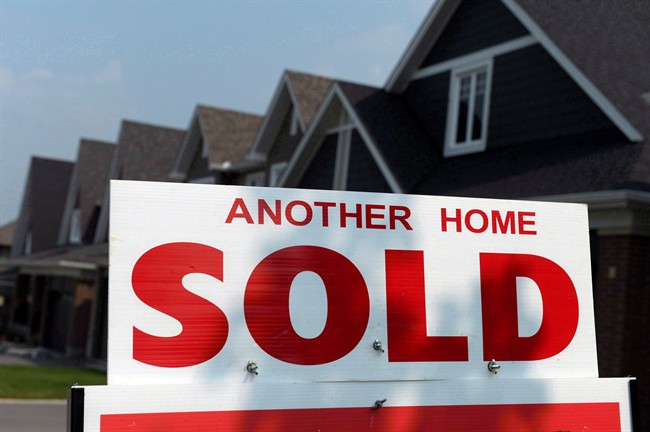If you sold your home in 2016, you need to let the taxman know as failing to do so could cost you up to $8,000 in penalties.

You heard that right. Canadians didn’t used to have to report the sale of the home that was their primary residence, but the Liberal government changed that when it introduced new federal mortgage rules last October.
READ MORE: What the CRA can and can’t do with your data and social media accounts
Starting this tax-filing season, a home sale that took place after January 1, 2016 needs to appear on your income tax return. Here’s what you need to know:
You still get the principal residence tax exemption
The changes do not affect your ability to claim the principal residence tax exemption, one of the most cherished provisions of our country’s income tax system. If you made money from selling your home, you don’t have to pay a capital gains tax on the proceeds.
From now on, however, you need to report the sale in order to be able to claim the exemption.
READ MORE: Canadians in the sharing economy are running out of excuses not to pay taxes
New requirement part of a tax-evasion crackdown
The new rule is meant to reduce tax evasion and take some steam out of overheated housing markets by closing a loophole exploited by real estate speculators.
READ MORE: Are federal mortgage rules actually working? Not really.
Without a requirement to disclose the sale of a primary residence, house flippers had an easy time buying and selling property tax-free. The primary residence exemption was never meant for such transactions, but what were the chances of an audit when the CRA wasn’t even aware the sales?
When the Liberals introduced the reporting requirement, it was widely seen as a measure to crack down on foreign buyers. But the primary residence exemption has been widely abused by Canadians as well, York University professor Lisa Philipps has noted in the Globe and Mail.
And now that the CRA will start receiving more data on home sales, you can bet it will keep a close eye on them.
READ MORE: Can’t afford to pay your tax bill? Here’s what you can do
“There is a perception that house and condo renovation and flipping has been taking place and that the profits from those sales are not being reported,” Toronto tax lawyer David Rotfleisch wrote on his website. And that has put pressure on the CRA to crack down, he added.
The agency has added at least 70 auditors to look specifically at real estate in B.C., according to a leaked memo that emerged last summer.
The CRA has also recently told Global News that stepped-up information-sharing with the provinces has helped it detect fraudulent real estate transactions.
In general, the industry is one of three — along with the food and accommodation sector and the retail sector — that the agency has singled out in its effort to catch tax-cheats in the cash economy.
WATCH: Canadian tax deadline: 8 things you need to know

Here’s what you need to do to stay out of trouble
- Report the sale of your primary residence on Schedule 3 of your T1 return. You’ll have to indicate when you bought the house, when you sold it and how much you made on it. You’ll also have to provide a description of the property.
- If you didn’t live in the house for the entire period you owned it, you’ll have to also file Form T2091, according to the CRA website. This would apply, for example, if you’ve designated your cottage as your principal residence for part of the year.
- Even if you rent part of the house or use it for business as well, you might still be able to claim it as your primary residence. More details here.
- If you forget to report the sale this year, you should file an amended return as soon as you can. The CRA can impose a penalty of $100 for every full month since the filing deadline, capped at $8,000. The good news is that the agency has said that for the first year it will only apply the penalty “in the most excessive cases.” Remember, though, if you don’t file, you won’t be eligible for the capital gains tax exemption.




Comments